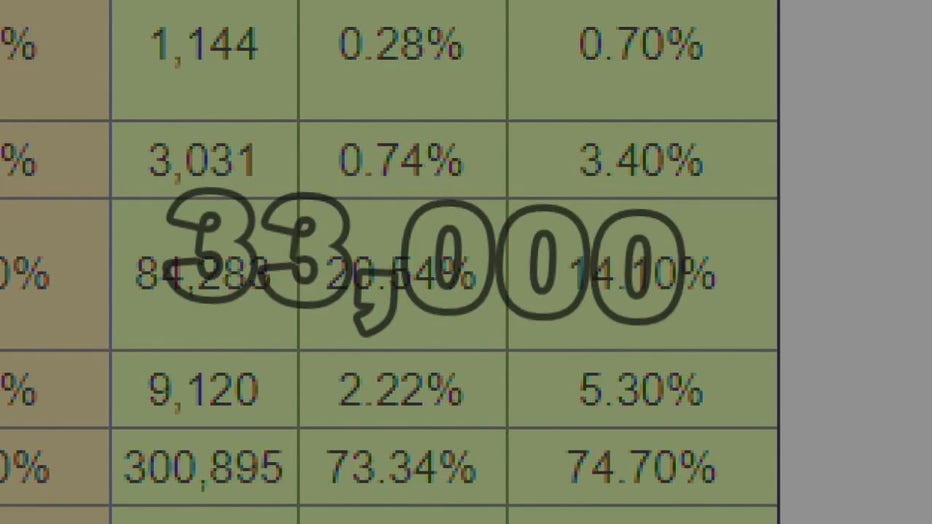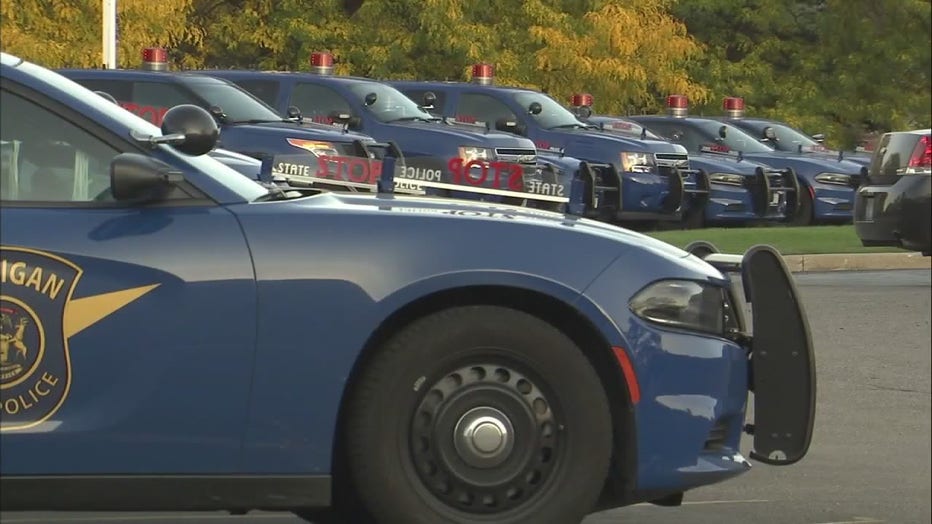New Michigan State Police traffic stop data shows Black drivers pulled over rose from 2017 to 2019
FOX 2 - The number of African-American drivers pulled over by Michigan State troopers went up year after year between 2017 and 2019.
That happened despite troopers making fewer overall traffic stops during that same period, according to data MSP released Friday as part of an effort to provide more transparency and build trust with the public.
Michigan State Police release data on traffic stops in effort to be more transparent
State police is bringing in a third party agency to analyze the information. Black drivers made up for about 17 percent of all traffic stops in 2017, nearly 19 percent in 2018 and more than 20 percent in 2019.
"When we kind of looked at everything, we kind of saw everything starting to pile up there and there were some concerns about how the African-Americans, in particular, started to stick out as far as that goes," said 1st Lt. Michael Shaw, Michigan State Police.
State police are bringing in a third-party agency to analyze the information. Black drivers made up for about 17 percent of all traffic stops in 2017,
nearly 19 percent in 2018 and more than 20 percent in 2019.
African-Americans only make up about 14 percent of the state's population according to census data. The total number of traffic stops made during those same years dropped by roughly 33,000.
"For several years the ACLU of Michigan has been monitoring Michigan State Police traffic stops," said attorney Mark Fancher. "And we found indications early on that there might have been some type of racial discrimination occurring. This seems to be further evidence of that high likelihood, if not a certainty."

Fancher is a staff attorney for the Racial Justice Project of ACLU Michigan. In 2017 state police ordered troopers to begin documenting the race of drivers they pull over.
Fancher says that was partly in response to pressure from the civil rights group after seeing FOX 2's story in March of 2016 in which a now-former state trooper alleged he and his then-colleagues were trained to target minorities for traffic stops to meet performance evaluations. This was because minority drivers may be under-insured, under-licensed, and impoverished: less likely, Tuer said, to get a lawyer to fight a traffic stop in court and less likely to be taken seriously if they were to file a complaint.
"Now the police I do not believe for a minute are inherently racist, but the policies that are put in place reward a racist behavior," said Craig Tuer.
State police denied Craig Tuer's allegations then and now.
"Trooper Tuer was totally incorrect," he said. "I mean from the very beginning from everything he talked about."
Lt. Shaw says a deeper dive into the traffic stops information will be crucial.
"We need to look at the time of day, was there an arrest made, where did it occur," Shaw said. "Different things that we need to look at to see if it really comes down to what's going on there is it racial profiling issue, and if there is we need to address it. If there isn't, is there other things we can do to make sure it doesn't happen.
"Because our ultimate goal is we treat everybody the same, exactly the same regardless of what your racial background is."
MORE: Go to the state police transparency accountability page here.
With this push for transparency, MSP is making a lot of information available to the public from departmental policies to use of force and traffic stop data. They are also forming a citizen's advisory council all of it to better improve their relationship with the public, they say.


